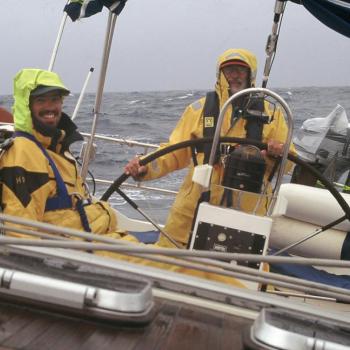Inspired by comments in the Bermuda Single Handed thread, I am starting this thread to discuss all sorts of tips for any long passage.
To kick it off:
I am considering an IridiumGo. I have access to the hardware so the only expense would be choosing a plan. This would give me access to offshore weather. I'm wondering what y'all think is the point at which Offshore weather is "nice to have" vs "must have". For example, a 2 day passage would be fine with a weather forecast prior to departure. but 5 day? 10 day?
downside to IridiumGo is that it is s l o w so slow, and pricey plans for what it does.
so, "to IridiumGo, or not to IridiumGo?"
To kick it off:
Here is one topic I am currently debating (with myself)
I am considering an IridiumGo. I have access to the hardware so the only expense would be choosing a plan. This would give me access to offshore weather. I'm wondering what y'all think is the point at which Offshore weather is "nice to have" vs "must have". For example, a 2 day passage would be fine with a weather forecast prior to departure. but 5 day? 10 day?
downside to IridiumGo is that it is s l o w so slow, and pricey plans for what it does.
so, "to IridiumGo, or not to IridiumGo?"






